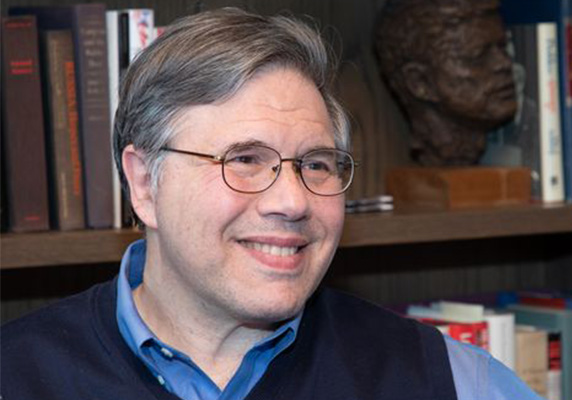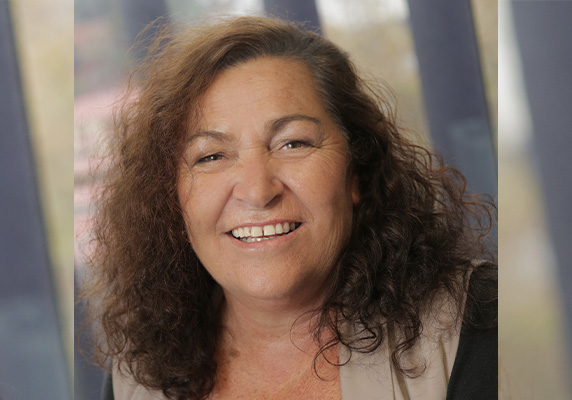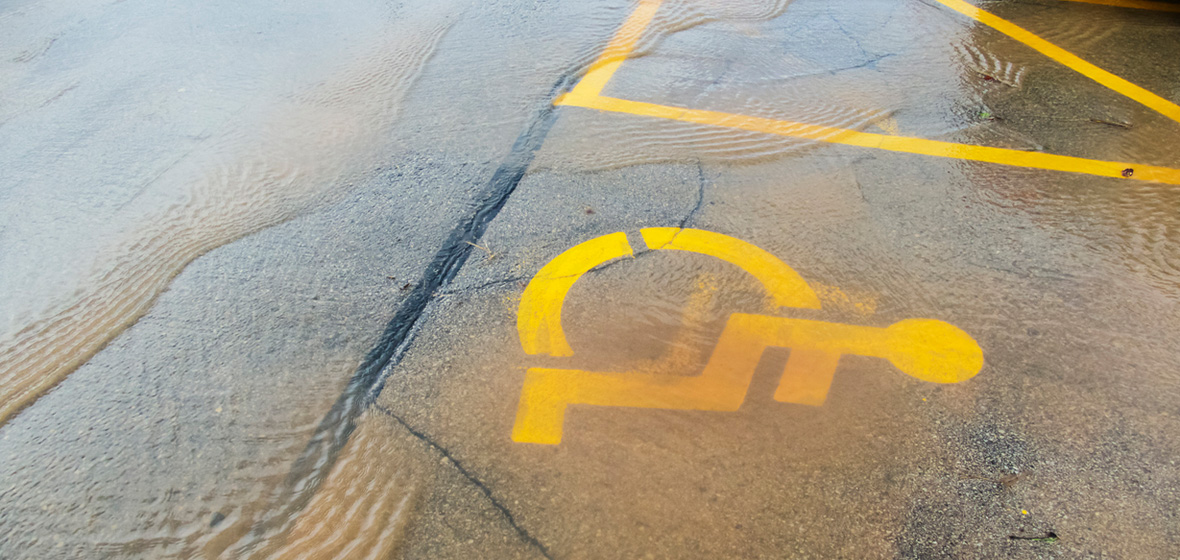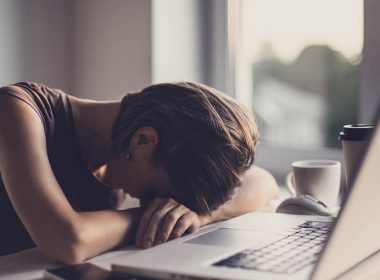People with disability are becoming increasingly vulnerable as climate change effects worsen. Their inclusion and protection are at risk, and Australia's First Nations people with disability face particular challenges.
People with disability have the ‘right to the full and equal enjoyment of all human rights and fundamental freedoms’, in accordance with Australia’s international obligations under the Convention on the Rights of Persons with Disabilities.
The increased occurrence and severity of extreme weather events occasioned by climate change, as the United Nations Refugee Agency (UNHCR) has noted, pose a risk to the protection and inclusion of people with disabilities.
In 2022, McGill University in Canada released a report, Disability Inclusion in National Climate Commitments and Policies, that revealed few countries make particular plans and provisions for people with disabilities when shaping their climate change policies. McGill University researchers examined the nationally determined contributions (NDCs) of countries subject to the 2015 Paris agreement, which demands a consideration for people with disabilities in NDCs. Only 35 of the 192 parties to the Paris agreement submitted NDCs that recognised people with disabilities in their policies for climate adaptation.
Importantly, there is a lack of consultation with people with a disability – and therefore lived experience – in terms of participation in policy and planning for climate change. It comes back to one of the principal tenets of the human rights of people with a disability: ‘nothing about us without us’.
Displaced and unsafe
As climate change impacts the environment, land devastation and hostile conditions are predicted to lead to forced displacement, leaving many vulnerable members of society in insecure and unsafe conditions.
The “Disability, Displacement and Climate Change” statement, released by the UNHCR in 2021 together with the Internal Displacement Monitoring Centre and the International Disability Alliance, notes that 80 per cent of persons with disabilities live in low and middle-income countries, which are vulnerable to increasingly rapid climate change.
The three organisations acknowledge the risks to people with disabilities both before and during displacement. Greater levels of poverty, poor quality housing and food insecurity are already vulnerabilities, as are the access to information and resources that enable people with disabilities to adapt to climate change. Importantly, people with disabilities may face barriers to early warning systems about climate disasters if these warnings are not delivered in sign language or audio messages for the hearing and sight impaired.
People with disabilities may face barriers to early warning systems about climate disasters if these warnings are not delivered in sign language or audio messages for the hearing and sight impaired.
In the event of displacement, people with disability may face physical barriers to evacuation or accessing temporary shelter and evacuation centres, increased threat of violence and discrimination. For those in wheelchairs or requiring a guide dog, the barriers to secure and efficient evacuation are even greater.
Seeking to prevent the growing divide
There is a significant lack of research into the impacts of climate change on people with disabilities, and therefore a lack of evidence for the most effective interventions to ensure their rights are upheld. The first step governments can take is to invest in research to prevent litigation and a growing divide between those who can maintain their quality of life through climate change and those who face poverty, ill health and exclusion. Rather than creating environmental and emergency policies in a vacuum, government and councils need to prioritise the lived experiences and knowledge of those with disabilities, across the diverse spectrum of physical and intellectual conditions.
The Harvard Law School Project on Disability (HPOD), established in 2004, promotes disability climate justice via a human rights approach, by collaborating with organisations of persons with disabilities, fostering implementation of the United Nations Convention on the Rights of Persons with Disabilities (CRPD), providing human rights training and education, and facilitating the development of international disability law and policy.
In September 2022, the HPOD was involved in developing the Global Disability Climate Justice working group that publishes disability climate justice articles and reports.
Professor Michael Ashley Stein is the co-founder and Executive Director of HPOD, and a Visiting Professor at Harvard Law School. Amongst his many international achievements, he was engaged in the drafting of the UN Convention on the Rights of Persons with Disabilities.

Stein told Harvard Law Today earlier this year: “Persons with disabilities are two to four times more likely to die or be injured in climate emergencies including heatwaves, hurricanes, and floods. Moreover, people with disabilities in disasters face inaccessible transportation and emergency shelters, social isolation, and institutionalization. The Census Bureau, in a Household Pulse Survey, found that 59 per cent of deaf evacuees do not return home. Instead, people with disabilities face unnecessary institutionalisation.”
Speaking with LSJ, Stein said: “Worldwide over a billion persons with disabilities are disproportionately affected by climate change which threatens their rights to life, health, food, personal mobility, and cultural life. The mortality rate of persons with disabilities in natural disasters is up to four times higher than persons without disabilities.
“And Australians with disabilities are disproportionately at risk from climate change. A 2022 study of the 2017 flood in rural Northern Rivers, New South Wales, found that persons with disabilities were profoundly affected with heightened odds of living in flooded homes, experiencing healthcare disruptions, and post-traumatic stress disorder. Heat waves are increasing in intensity and frequency in Australia. A 2022 analysis of Australian heatwave fatalities from 2001 to 2018 found that 89 per cent of fatalities had a disability or multiple disabilities.
“Intersectionally, persons facing multiple discrimination such as First Nations people are disparately impacted.”
Stein added, “Persons with disabilities are systemically neglected in climate negotiations, national climate commitments, and policies. For example, 81 per cent of nationally determined contributions fail to reference persons with disabilities, including Australia’s 2022 updated NDC.”
A double disadvantage
The Australian Institute of Health and Welfare (AIHW) reports that more than 4 million Australians have a disability (18 per cent of the population). New South Wales is home to the highest number of people with disabilities (1,346,200), followed by Victoria (1,098,200), and Queensland (938,100).
According to the Royal Commission into Violence, Abuse, Neglect and Exploitation of People with a Disability, disability is twice as common for First Nations people (38 per cent of First Nations people have a disability while 18 per cent of the general population experience live with disability). Of children under 18, 22 per cent of First Nations children live with disability while 8 per cent of the general population live with disability.
In March 2021, the Royal Commission published its overview of responses to emergency planning and response issues. Many responses related to the effects of the pandemic on the disability community, but many also related their experience of suffering neglect during emergencies – bushfires and floods, particularly – and a significant lack of culturally appropriate, accessible information and resources for First Nations people with a disability.
June Riemer is the Deputy CEO of the First Peoples Disability Network (FPDN). In 2021 she was named NSW Aboriginal Woman of the Year for her over 40 years of work in the disability and community services sector.

Riemer says, “We’ve worked in this space for 23 years. For many of our communities, disability is something that they collectively take care of. A lot of mob don’t identify as living with disability because community and family take care of them. Because so many of our communities live in poverty and disadvantage, they all have a disability to an extent. We call it double disadvantage. Disability is a Western construct in labelling, but we have a social model that begins with ‘how can we support you to participate despite disadvantage and disability?’”
Riemer adds, “The government and service sectors have a lot to account for in terms of the same human rights not being enabled for First Nations communities as for other groups. We need a First Nations Climate Change Commissioner that advocates on behalf of us. Unless we’re listening and hearing what the issues are for individuals across various jurisdictions, the silent minority won’t have their needs met, including those with disability and the increasing threats of climate change that decrease accessibility and liveability.”
Riemer says that the official response to COVID-19, as with climate change, was ad hoc. “It was communities and NGOs that took the initiative and got PPEs or emergency packs, so it’s always been civil society groups that step up.”
When the land is not cared for
The irreversible changes to land, wildlife and plants as a result of increasing temperatures and extreme weather events has a powerful impact on First Nations people, Riemer says.
“As First Nations people we talk about spirituality and connection to Country, land and place. We don’t own the land, we’re part of the land. That’s our Dreamtime, spirits and totems. When the land is not cared for, you lose part of your soul, your Dreamtime. We’ve always had droughts, fires and floods but we never over-farmed, over-fished or over-developed. Now that we cannot manage our land – with strategic burn-offs to enable regeneration, for example – and we cannot move with the seasons, we’ve lost that agency.
“At FPDN, we talk about the intersection of the UN rights of Indigenous people and the CRPD. Your right to culture, right to Country, should be enabled wherever you live. If you want us to live within a Western construct, you must eradicate the barriers to participating. If you want us to walk in two worlds, you must have appropriate access to transport, medical facilities, safe roads to walk and drive, and access to wheelchairs or whatever equipment is needed to participate.
“In terms of climate change, when we’re barred from going out on Country as a person with disability, that’s a human rights violation. Government took away traditional food and gave Aboriginal people Western food, which exacerbated diabetes and kidney disease, but healthy, fresh food is too expensive for many. We’re not allowed to hunt or forage on land, but fresh food is extremely expensive.”
‘In terms of climate change, when we’re barred from going out on Country as a person with disability, that’s a human rights violation.’
For Riemer, the accessibility of housing and liveability in that housing is a major concern as land and resources come under increasing threat from climate change.
“We’ve seen already that across many communities there is a lack of appropriate housing or any housing availability at all. There can be 30 to 50 people in a two-bedroom house in some areas, so the needs of the most vulnerable are not being met despite people doing the best they can … we need enough appropriate, accessible housing for everyone: including those living with a disability or aged care receiving support by state and territory governments. You can’t say ‘you have to live this way’ then not provide those facilities.”
A blueprint for inclusivity
Stein offers the city of San Francisco as an example of inclusivity on climate change action. He notes that San Francisco’s Climate Action Plan and Hazards and Climate Resilience Plan were developed with disability planners and disability stakeholders. The city’s Disability Council was part of the planning team, and the plan documents a meeting between planners and a group of disability stakeholders, who identified some of the disability community’s “unique needs.”
The participation of people with disability in San Francisco’s Climate Action Plan “demonstrated good practice by ensuring meaningful participation in climate-decision-making by persons with disabilities and their representative organisations,” Stein said.
In the United States, climate measures must comply with the Americans with Disabilities Act (ADA), for example the National Electric Vehicle Infrastructure programs electric vehicle charging stations must be ADA-compliant.” Stein points to cases that resulted from organisations challenging the states over their compliance with the ADA.
“Communities Actively Living Independently and Free v. City of Los Angeles found that the City of Los Angeles’ emergency preparedness plan had violated the ADA. Also, in BCID v Bloomberg, the City of New York was found to have failed to ensure ‘people with disabilities [had] meaningful access to its emergency preparedness program’.”
According to the Harvard Law School Project on Disability, lawyers can play a fundamental role in pursuing strategic climate litigation in the aim of increasing government climate commitments.
Stein says, “In 2021, in Environmental Justice Australia (EJA) v. Australia, a complaint was submitted on behalf of five young Australians, including First Nations and people with disabilities, in a communication to the United Nations Special Rapporteur on the rights of persons with disabilities, Special Rapporteur on Human Rights and the Environment, and Special Rapporteur on the rights of Indigenous peoples.
“This communication sought explanation of how Australia’s climate inaction and NDCs are compliant with human rights obligations, or a pathway to 1.5 degrees seeks the participation of young people in NDC climate decision-making, and urges the state to comply with human rights obligations in 2030 targets. In 2022, Daniel Billy and others v. Australia, Australia was found to have violated the International Covenant on Civil and Political Rights though climate inaction which violated Indigenous Torres Strait Islanders’ article 17, right to home, private life, and family, and article 27, right to culture.”




